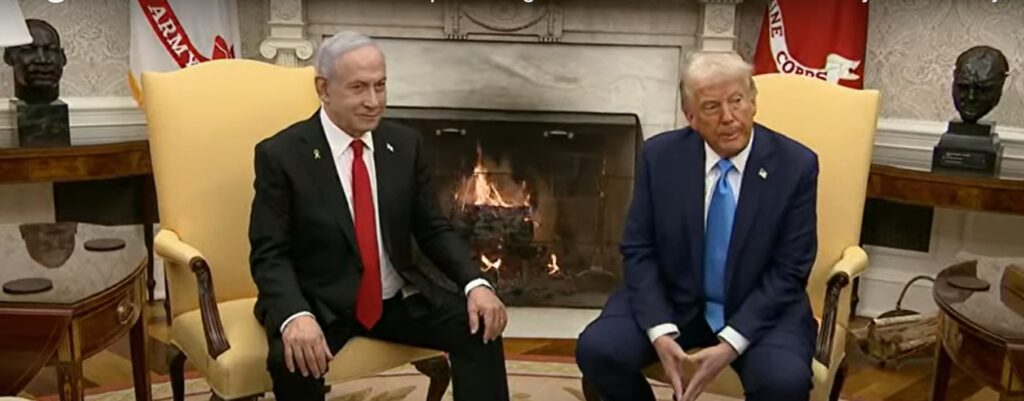Senior political figures in Jerusalem assert that Trump, as leader of the world’s most powerful nation, has legitimized the idea of transfer as a viable solution to the Palestinian problem.
His plan, which envisions relocating Gaza residents to Egypt and Jordan, revives a concept that had lost legitimacy in Israeli political discourse.
For decades, the notion of Palestinian transfer was considered unacceptable, even leading to the outlawing of the “Kach” party in 1994 due to its advocacy for forced transfer.
According to these officials, Trump’s immigration plan undermines Arab nationalism, effectively conveying to the Palestinians that they are not a distinct people with an inherent national claim to the land.
From the Palestinian perspective, Trump has denied their right to their land and their right to self-determination.
While many in Israel remain hesitant to use the term “transfer,” preferring euphemisms such as “immigration” or “relocation,” the discourse is shifting rapidly.
The term is gaining renewed moral and legal legitimacy, expanding its presence in the public and political arena.
Palestinian officials anticipate that the concept of transfer will soon extend beyond Gaza, with future Israeli demands to relocate Palestinians from Judea and Samaria as well.
According to American sources, Trump views the transfer of Palestinians from Gaza, along with the establishment of settlements and economic projects in the Strip, as both natural and pragmatic.
Political analysts argue that Trump’s plan provides a significant boost to Israel’s right-wing camp.
It has also stabilized Prime Minister Benjamin Netanyahu’s coalition, preventing its collapse.
Minister Bezalel Smotrich is unlikely to resign, and Itamar Ben Gvir is already strategizing his return to the government after previously stepping down.
Israel is actively preparing for the implementation of Trump’s plan.
Defense Minister Israel Katz has directed the IDF to develop a framework enabling voluntary Palestinian emigration from Gaza.
The plan includes exit routes via land crossings, as well as potential arrangements for departures by sea and air.
But what about the Palestinians themselves? Many in Gaza reportedly wish to leave, but not to refugee camps in Egypt or Jordan.
Senior Fatah officials argue that Palestinian leadership is weak and corrupt, leaving the people with no reliable advocates.
Arab governments, despite their vocal opposition to Trump’s plan, are unlikely to resist it in the long run.
A senior political official noted that with just a few statements, Trump has shattered long-held assumptions about the Palestinian issue.
His immigration plan has left policymakers scrambling, and it remains unclear whether anyone will be able to halt its progress.
Ultimately, the residents of Gaza will bear the brunt of this new Nakba—one brought upon them, some say, by Yahya and Mohammad Sinwar.




